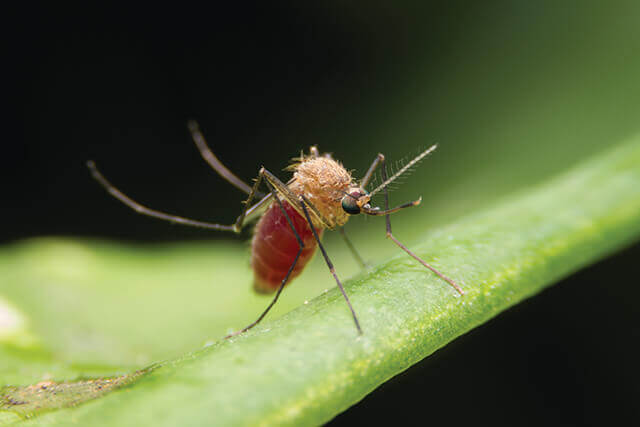
Approximately 60 species of mosquitoes call Georgia home. In addition to their annoying whine and itchy bites, they can transmit dangerous viruses like Zika, West Nile, and the causes of malaria and yellow fever. The good news is that male mosquitoes don’t bite us and only live for about a week. The less good news is that female mosquitoes have an average lifespan of six weeks; with reliable access to tasty blood, some varieties can live for five months or even longer. The bad news is a single female mosquito can lay between 50 and 500 eggs in her lifetime. We’re badly outnumbered. Here are a few tips to cut down on the number of mosquitoes you have to share your yard with.
1) Remove or replace standing water
Mosquitoes lay their eggs in stagnant water, so eliminating those opportunities is one of the most effective ways to reduce their numbers. If an area of your yard has poor drainage, addressing it will be a big help. If you’ve got a leaky outdoor faucet that’s creating a puddle, fixing it should be quick work. Blocked gutters and downspouts, kiddie pools, buckets, wheelbarrows, and garbage can lids might also create attractive breeding areas.
Some people are confused about the best way to handle standing water you’ve put in place purposefully, like drinking bowls for pets and birdbaths. Saucers under plant containers also fall into this category, because we want them to collect water even though we don’t fill them intentionally. Mosquito experts tell us that a mosquito spends between 10 and 14 days in its developmental stage. Their recommendation is somewhat conservative: changing out water every five days. That should provide a cushion if you can’t get to this task on schedule, and of course you’re always free to do it more frequently. (We probably don’t need to nudge you to pour out this water on your plants whenever possible, but it’s worth repeating.)
2) Tidy up your yard
Relatively dense foliage provides shelter for mosquitoes to hide. Potential trouble spots include thick grass that’s getting too tall, large groups of potted plants placed close together, and overgrown landscape plants. If mosquitoes don’t have immediate access to standing water, they’ll settle for the kind of damp conditions found in rotting wood or piles of leaves.
3) Confuse them
Mosquitoes are attracted to people because of our body heat and scent. Not much can be done about our internal temperature, but repellents mask our attractive smell, at least to some extent. Citronella candles and essential oils are somewhat helpful, but their smell doesn’t cover much space and diffuses too quickly to provide meaningful relief. One method that is effective is placing a couple of electric or battery-powered fans around the area where you’ll be working or relaxing. These will also (obviously) cool you off.
Plenty of traps and treatments you can apply yourself are available at home and garden supply stores. If you’re interested in a more comprehensive approach that’s organic and won’t harm pollinators, Simply Organic Turf Care can help. Mosquito control, applied once per month from May through October, is available as an addition to either of our lawn care programs. To learn more, call us at 678.679.7849.

